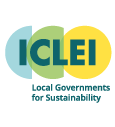Finance
 In spite of the significant efforts made in the past years, the gap between the availability and accessibility of finance for climate friendly urban projects remains a challenge. Mostly due to political, technical and financial constraints, sub-national governments are often unable to access the finance they would need to design and invest in the projects that would help them in their path towards a net zero emission and climate resilient development. The latter is of particular importance as the frequency and magnitude of natural hazards are rising, and climate-induced risks threaten, in particular, the stability and livelihoods of many urban areas of low- and middle-income countries.
In spite of the significant efforts made in the past years, the gap between the availability and accessibility of finance for climate friendly urban projects remains a challenge. Mostly due to political, technical and financial constraints, sub-national governments are often unable to access the finance they would need to design and invest in the projects that would help them in their path towards a net zero emission and climate resilient development. The latter is of particular importance as the frequency and magnitude of natural hazards are rising, and climate-induced risks threaten, in particular, the stability and livelihoods of many urban areas of low- and middle-income countries.
Local governments play a critical role in achieving the goals of the Paris Agreement and the Sustainable Development Goals (SDGs), while shedding light on the challenges of financial resilience. The increased vulnerability to climate hazards urges to manage and mitigate climate risk, develop strategies and insurance products for climate resilience. One of the most critical climate hazards is biodiversity loss.
To unlock and catalyse the finance needed, ICLEI supports local and regional governments through the Transformative Actions Program (TAP), a program which provides customised advice, networking opportunities, training, and tools that help in designing robust projects and accessing technical and financial assistance.
Besides, Urban Infrastructure Insurance Facility (UIIF) is a project that seeks to increase the financial resilience of municipalities in Latin America. UIIF does so by enabling local governments to develop tailor-made insurance products that fit their needs in order to better secure critical infrastructure and poor vulnerable populations from the impacts of natural hazards. Such initiatives provide innovative solutions for filling in the gap between availability and accessibility of finance for long-term climate action.
Through the Urban Natural Assets (UNA) Resilience and Restoration for Life and INTERACT-Bio programmes, ICLEI is supporting local and regional governments to understand and access finance for biodiversity. With urban expansion projected to grow significantly in the next 20-30 years (particularly in Asia, South America and Africa) and biodiversity loss threatening our global economy, the need to protect and conserve biodiversity is imperative.
To do so, the financial flows into preventing further biodiversity loss need to be up-scaled. With cities being at the centre of economic growth, the need for increasing biodiversity finance efforts is growing. Biodiversity finance is the practice of raising and managing capital, using financial incentives and instruments, to support sustainable biodiversity management, conservation and ecosystem restoration. Globally, the annual conservation finance gap is around $250 billion. One of the important features of the post-2020 global biodiversity framework that Parties, major groups and international organisations will adopt at the Biodiversity COP later this year in Kunming, China, is how to leverage additional financial resources from all sources to make up this shortfall. This includes measures aimed at improving access to biodiversity finance, such as expanding the envelope of the Global Environmental Facility, establishing a new global biodiversity fund, introducing incentives aimed at reducing/redirecting financial flows that are harmful for biodiversity and other measures and mechanisms.
Therefore, cities and regions need innovative instruments to unlock the necessary finance to tackle climate change and protect biodiversity. The three finance sessions organised during the ICLEI World Congress offer a broad perspective of the initiatives and tools available for local and regional governments to access financing, shedding the light on cities’ good practices and strategies to overcome common challenges




